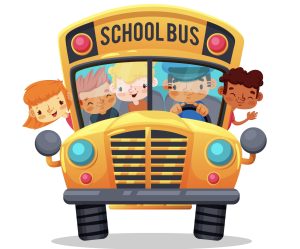Parent-teacher communication is crucial for the success of a student’s educational journey.
Here are 10 tips and strategies to improve and maintain effective communication between parents and teachers:
1. Teachers can start the school year by introducing themselves and send an introductory email or letter to parents, above all they should provide contact information “before” back to school night if possible.
I know it’s a lot of work but I also sent each child in my class a welcome letter over the summer. The first day of school each child had an apple on their desk with a beautiful milar balloon tied to it.
 I will always remember parents telling me the smiles when they got off the bus the 1st day of school.
I will always remember parents telling me the smiles when they got off the bus the 1st day of school.

2. Besides traditional methods like phone calls and emails, teachers should consider using a class website, parent-teacher communication apps, or social media platforms to make communication more convenient and accessible for parents

3. Teachers should provide regular updates on students’ progress and academic performance.
This could include sending out weekly or monthly newsletters, progress reports, or scheduling parent-teacher conferences.
I would do Friday letters which I would dictate to my class , therefore it was two-fold. It Provided students listening skills and gave them letter writing strategies.
4. Another key point is to always respond to parent inquiries or concerns in a timely manner. This helps alleviate any anxieties and build trust between parents and teachers.

5. Encourage two-way communication: Parents should be encouraged to share their observations and concerns about their child’s academic or social well-being.
Teachers can create an open and non-judgmental environment for parents to express themselves.
6. Another key point is to “ Celebrate student achievements:Taking the time to celebrate students’ achievements, no matter how big or small, can help foster positive communication and engagement between parents and teachers.
7. Personalize communication: Recognize that each family is unique and may have different needs and preferences for communication. Try to accommodate these preferences to ensure effective communication with all parents.

8. Translate information if needed: Be mindful of language barriers. If necessary, provide translations of important documents or communicate with non-English speaking parents through a translator.
9. Collaborate on strategies: Teachers and parents can work together to develop strategies to support the student’s learning and address any challenges they may be facing.
10. Follow up on agreed actions: After discussing strategies or setting goals, make sure to follow up with parents on their progress and any additional support that may be required.
Specifically effective communication is a process that requires ongoing effort from both parents and teachers, however working together, they can create a strong partnership to support the student’s success.
Parent-teacher conferences provide an opportunity for parents/guardians and teachers to discuss any concerns or issues regarding the child’s academic or social performance in school. This open dialogue can help identify any issues early on and address them before they become more significant problems.
What questions will you prepare to ensure subjects to keep with over the summer?
